As we approach 2025, the workplace continues to evolve with new technology and skill demands. Professionals must embrace innovative tools and adapt to industry trends. Staying informed is crucial to career growth. Below are ten essential insights and statistics from global experts on the skills and tech trends shaping the future of work.
1. AI and Machine Learning: Powering Singapore’s Future Workforce
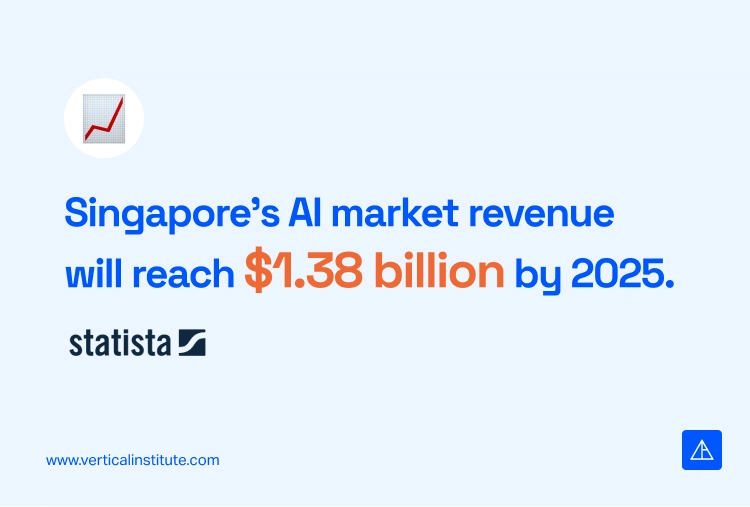
Jobseekers can keep up with the growing AI industry by building skills in machine learning, neural networks, and natural language processing (NLP). Proficiency in tools like Python, TensorFlow, and PyTorch is highly valuable. With AI driving innovations in healthcare, finance, and logistics, opportunities for roles such as AI engineers and data scientists are expanding. Pursuing certifications, engaging in Smart Nation initiatives, and showcasing practical AI projects can help candidates stand out in this fast-evolving field.
Related: Introduction to Generative AI: History and Evolution of Gen AI That You Should Know
2. Data Analytics: The Key to Smarter Decisions
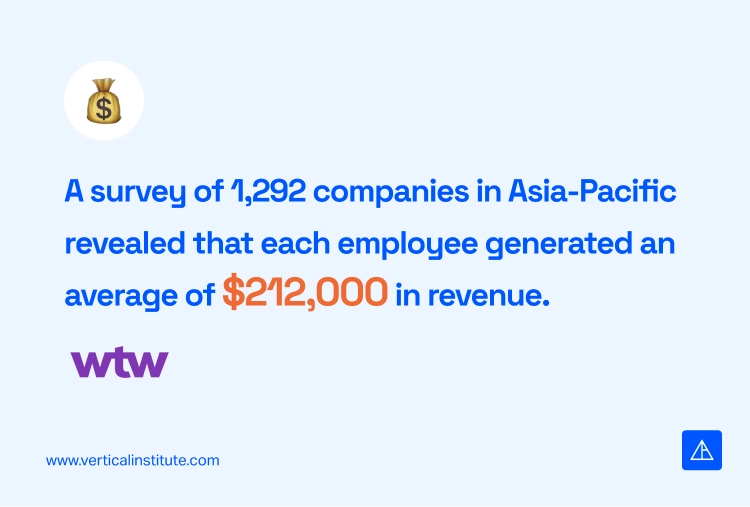
Data analytics helps organisations improve operations by analysing key metrics. In HR, it boosts workforce efficiency and aligns strategies with financial goals. Marketing uses data to refine campaigns, while healthcare enhances patient care through analytics. Individuals can stay competitive by learning tools like Tableau and Python. Specialising in workforce or marketing analytics and earning certifications can open doors to data-driven roles.
Related: Why Learn Tableau? 4 Key Reasons to Elevate Your Data Analytics Skills
3. Cybersecurity: Opportunities Amid a Growing Workforce Gap
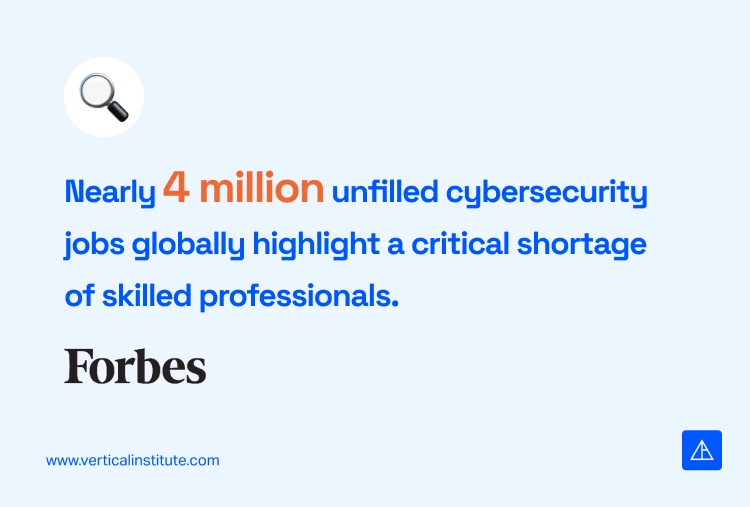
The growing frequency of cyber threats has created significant opportunities for individuals pursuing cybersecurity roles. Aspiring professionals can gain an edge by earning certifications like Certified Information Systems Security Professional (CISSP) or Certified Ethical Hacker (CEH) and developing expertise in areas such as threat detection, incident response, and cloud security. Hands-on experience with security tools and frameworks and staying updated on emerging trends are vital to succeeding in this critical and fast-growing sector.
Related: 7 Ways Cybersecurity Training Boosts Your Career and Skills
4. Digital Marketing: The Power of Data-Driven Strategies
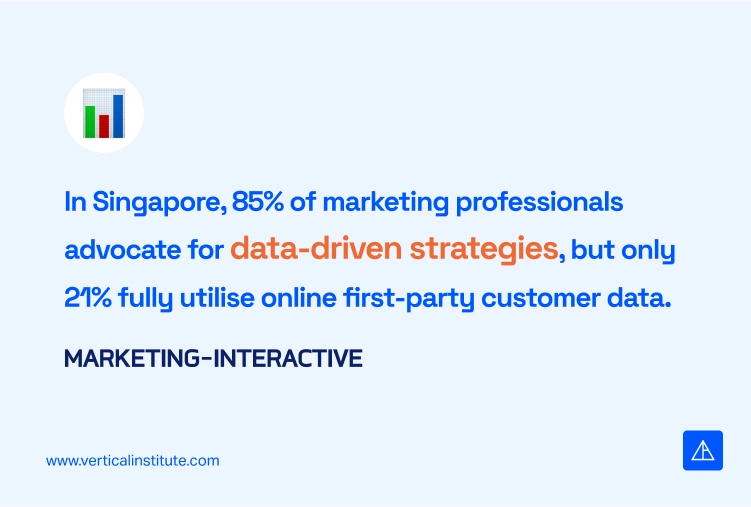
Many marketers recognise the importance of data but aren’t making the most of what they have. To close this gap, professionals should focus on skills that help them collect, analyse, and apply customer data effectively. Learning tools like Google Analytics, CRM systems, and data visualisation software can make a real difference. By using first-party data to create personalised, targeted campaigns, marketers can connect better with audiences and achieve stronger results. Adding certifications and updating yourself on new trends will help build confidence in navigating this data-driven shift.
Related: Top 10 Tips to Upskill in Digital Marketing
5. E-Commerce Growth: Skills in Online Retail Analytics
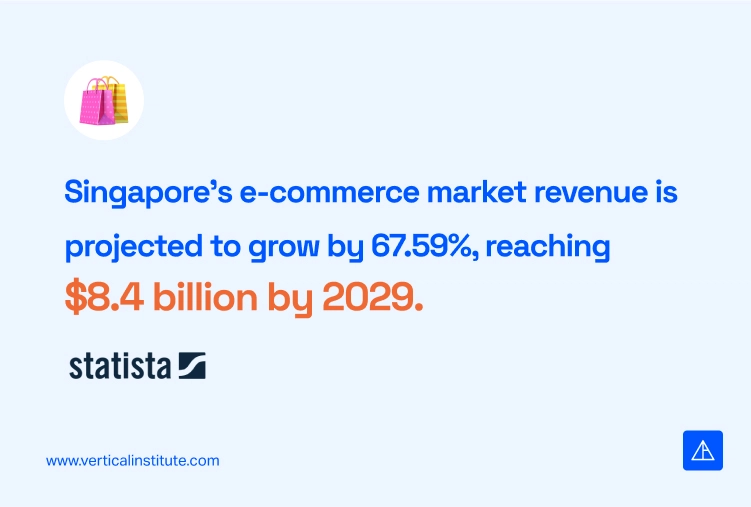
The rapid growth of e-commerce highlights the demand for professionals skilled in retail analytics, inventory optimisation, and customer experience management. Developing expertise in platforms like Shopify, Magento, and e-commerce analytics tools is essential for thriving in this fast-growing sector. Individuals should build search engine optimisation (SEO) and consumer behaviour analysis skills to capitalise on this expansion further.
Related: How Learning e-Commerce Online Can Benefit Professionals and Business Owners
6. Blockchain and Cryptocurrency: Unlocking New Opportunities
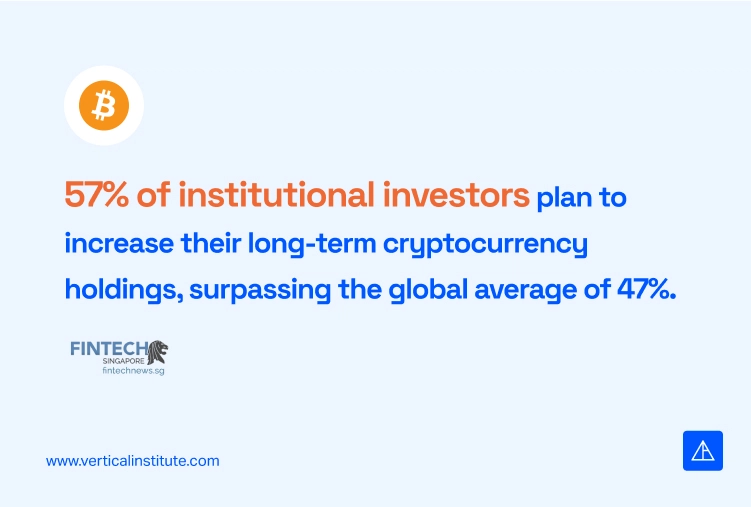
The growing adoption of digital assets offers significant opportunities for those looking to explore blockchain technology or start a career. Skills in blockchain platforms, regulatory frameworks, and digital asset management are increasingly in demand. Gaining expertise in smart contracts, cryptocurrency trading, and compliance can open doors in this fast-evolving sector. Staying updated on market trends and earning certifications in blockchain technology will help aspiring professionals succeed.
Related: How To Become A Blockchain Developer In Singapore
7. Augmented Reality and Virtual Reality: Transforming Learning
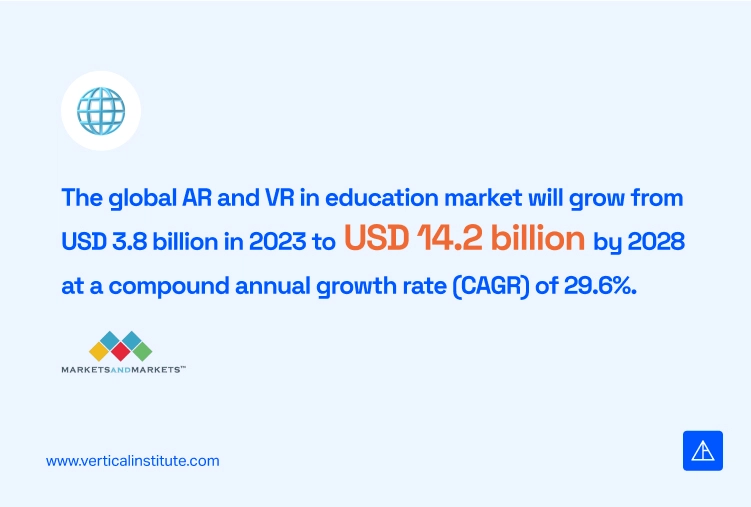
AR and VR are transforming industries by creating interactive simulations and virtual environments. For beginners, foundational courses in computer programming (C#, Python) and UX/UI design provide essential stepping stones to mastering tools like Unity and Unreal Engine, which are widely used in education, healthcare, manufacturing and corporate training applications.
Related: 7 Python Programming Fundamentals Every Developer Should Know
8. Soft Skills: The Human Edge in a Tech-Driven World
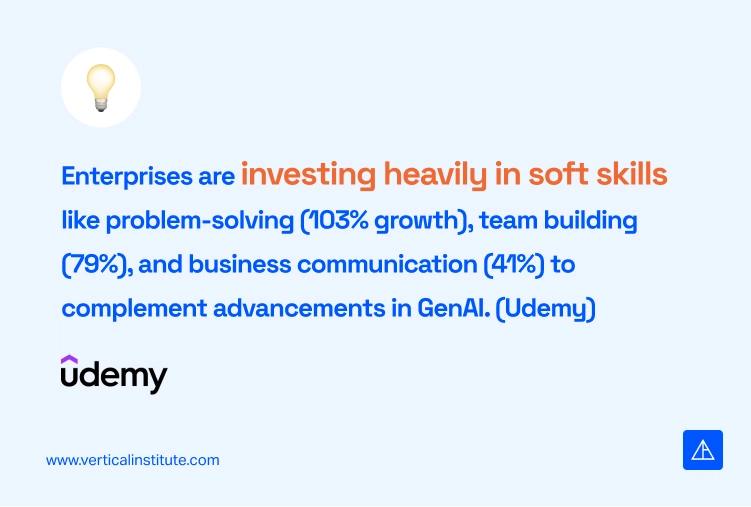
Soft skills are increasingly important as Generative AI takes over routine tasks, allowing more focus on strategic and people-focused work. Combining GenAI skills with creativity and teamwork helps professionals maximise the benefits of new technologies. As companies encourage returning to the office in 2025, these skills will improve communication, boost collaboration, and support mentorship, especially for teams new to in-person work.
Related: How to Start with Generative AI: Best Practices for Working Professionals
9. Remote Work Skills: Thriving in a Virtual World
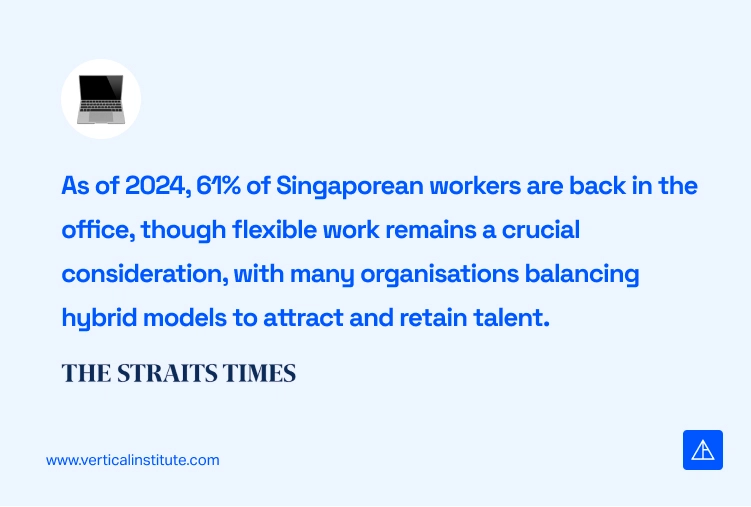
The trend toward hybrid work highlights the need for professionals to excel in remote and in-office collaboration. Mastering tools like Teams and Zoom is crucial for virtual teamwork, while time management and adaptability ensure productivity across environments. As flexible work evolves, these skills will be essential for thriving in Singapore’s modern workplace.
10. Freelancing and the Gig Economy: Skills for Independence
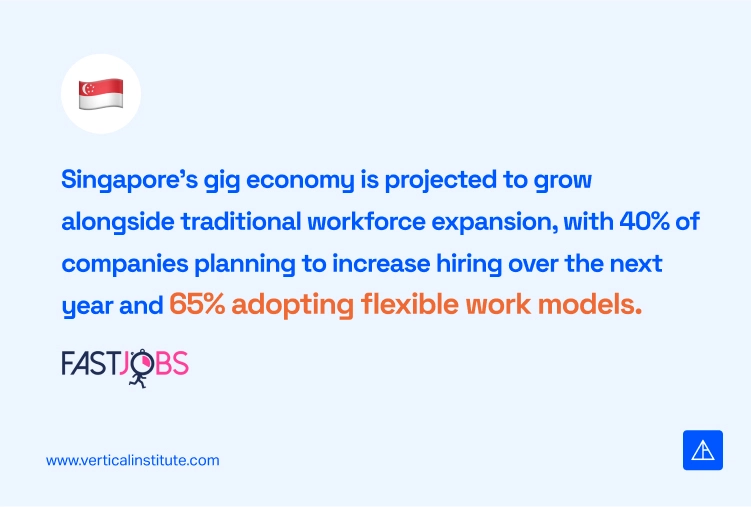
As freelancing becomes a more prominent career option, upskilling in digital marketing, data analytics, and project management can significantly enhance employability and client retention. Freelancers who develop these skills are better equipped to meet diverse client demands, build a strong personal brand, and adapt to dynamic job market trends. In a competitive gig economy, continuous learning ensures professionals stay ahead and maximise their earning potential.
Related: Top 10 Tips to Thrive as a Freelance Digital Marketer in Singapore
Conclusion
The workplace of 2025 is rich with opportunities for those who embrace change and prioritise personal growth. Mastering emerging technologies like AI and blockchain, enhancing soft skills, and excelling in hybrid work environments require adaptability and continuous learning. Enrolling in in-demand courses empowers professionals to deepen expertise, acquire sought-after skills, and stay ahead of trends. By committing to lifelong learning and leveraging specialised training, individuals can confidently navigate challenges, seize opportunities, and thrive in a future shaped by top skills and tech advancements.
Use Our Course Subsidy Calculator to Upskill for Less!
Calculate your course subsidies instantly with our easy-to-use tool. Explore how to reduce costs and gain essential skills to advance your career in 2025. Start your journey to affordable learning now!
COURSE SUBSIDY CALCULATOR
Discover how much you can save on Vertical Institute’s courses.
About Vertical Institute
Vertical Institute is shaping the future of work by preparing individuals for tomorrow’s job market. Our courses and certification focus on teaching essential skills and nurturing the next generation of innovators and leaders.
As an Approved Training provider (ATO) accredited by SkillsFuture Singapore (SSG) and the Institute of Banking & Finance Singapore (IBF), our courses adhere to the highest standards. They are government-subsidised and eligible for SkillsFuture Credits or NTUC UTAP Funding.



